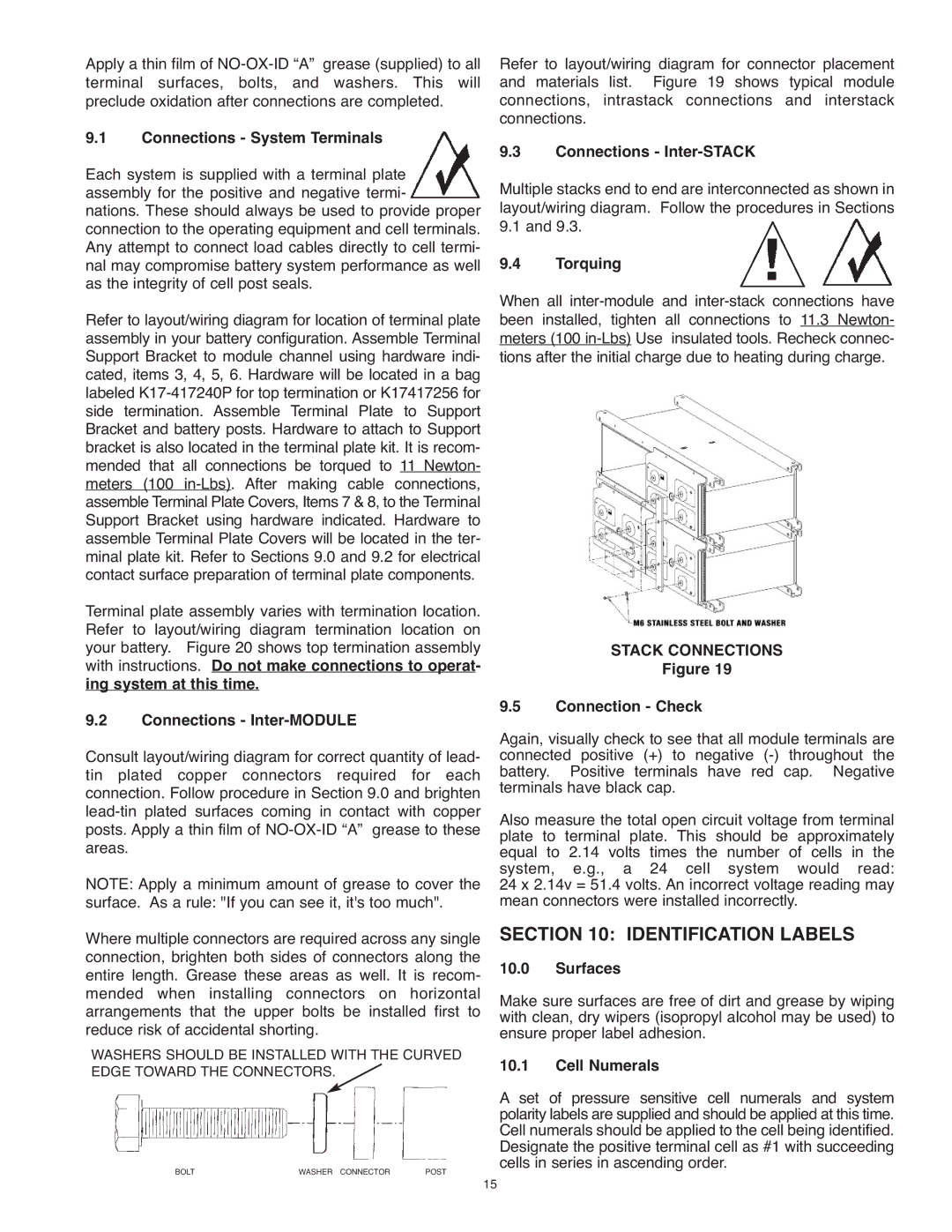
Apply a thin film of
9.1 Connections - System Terminals Each system is supplied with a terminal plate assembly for the positive and negative termi- nations. These should always be used to provide proper connection to the operating equipment and cell terminals. Any attempt to connect load cables directly to cell termi- nal may compromise battery system performance as well as the integrity of cell post seals.
Refer to layout/wiring diagram for location of terminal plate assembly in your battery configuration. Assemble Terminal Support Bracket to module channel using hardware indi- cated, items 3, 4, 5, 6. Hardware will be located in a bag labeled
9.2 Connections - Inter-MODULE
Consult layout/wiring diagram for correct quantity of lead- tin plated copper connectors required for each connection. Follow procedure in Section 9.0 and brighten
NOTE: Apply a minimum amount of grease to cover the
surface. As a rule: "If you can see it, it's too much". Where multiple connectors are required across any single connection, brighten both sides of connectors along the entire length. Grease these areas as well. It is recom- mended when installing connectors on horizontal arrangements that the upper bolts be installed first to reduce risk of accidental shorting.
WASHERS SHOULD BE INSTALLED WITH THE CURVED EDGE TOWARD THE CONNECTORS.![]()
BOLT | WASHER CONNECTOR | POST |
Refer to layout/wiring diagram for connector placement and materials list. Figure 19 shows typical module connections, intrastack connections and interstack connections.
9.3 Connections - Inter-STACK
Multiple stacks end to end are interconnected as shown in layout/wiring diagram. Follow the procedures in Sections 9.1 and 9.3.
9.4 Torquing
When all
STACK CONNECTIONS
Figure 19
9.5 Connection - Check
Again, visually check to see that all module terminals are connected positive (+) to negative
Also measure the total open circuit voltage from terminal plate to terminal plate. This should be approximately equal to 2.14 volts times the number of cells in the system, e.g., a 24 cell system would read: 24 x 2.14v = 51.4 volts. An incorrect voltage reading may mean connectors were installed incorrectly.
SECTION 10: IDENTIFICATION LABELS
10.0 Surfaces
Make sure surfaces are free of dirt and grease by wiping with clean, dry wipers (isopropyl alcohol may be used) to ensure proper label adhesion.
10.1 Cell Numerals
A set of pressure sensitive cell numerals and system polarity labels are supplied and should be applied at this time. Cell numerals should be applied to the cell being identified. Designate the positive terminal cell as #1 with succeeding
15 cells in series in ascending order.
